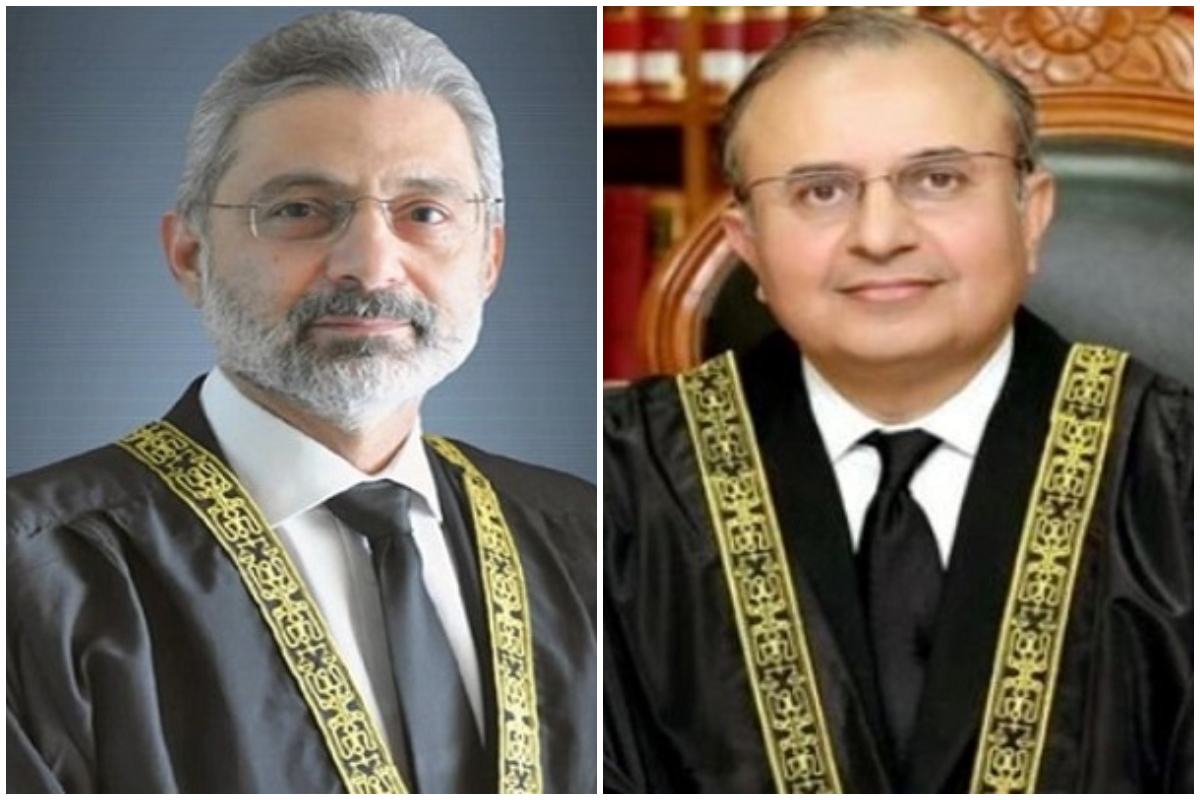ISLAMABAD: In response to a letter from senior puisne judge Justice Mansoor Ali Shah, who questioned the removal of Justice Munib Akhtar from a judges’ committee, Chief Justice of Pakistan (CJP) Qazi Faez Isa provided 11 reasons to justify his decision on Thursday.
On September 20, following the enactment of the new Supreme Court (Practice and Procedure) Amendment Ordinance 2024, CJP Isa appointed Justice Amin-Ud-Din Khan to the three-member committee, excluding Justice Akhtar. The ordinance grants the chief justice the authority to nominate a judge to the committee responsible for forming benches. The committee is to consist of the chief justice, the next most senior judge, and a judge nominated by the CJP.
In his letter, CJP Isa stated that, while he was not legally required to explain his nomination, he chose to provide reasons for Justice Akhtar’s replacement for the sake of transparency and accountability, as insisted by Justice Shah. He listed 11 reasons for this decision.
CJP Isa noted that Justice Akhtar had strongly opposed the Supreme Court (Practice and Procedure) Act, which diminished the chief justice’s unilateral control over the court. He further mentioned that Justice Akhtar, along with one other judge, took full summer vacations despite a backlog of cases, and that during his vacation, Akhtar still sought to participate in committee meetings, indicating distrust in Justice Yahya Afridi, the next senior judge.
The chief justice also pointed out that Justice Akhtar failed to prioritize urgent constitutional cases, which by law should be addressed within 14 days, and disrespected senior ad hoc judges by limiting their casework. Another factor mentioned was Akhtar’s refusal to allow ad hoc judges to serve on the Shariat Appellate Bench, delaying long-pending cases.
Further justifications included Justice Akhtar’s rude behavior toward a distinguished committee member and his walking out of a meeting that included all chief justices, senior puisne judges, and bar members. Additionally, CJP Isa criticized the performance of the bench led by Justice Akhtar, which frequently adjourned cases and completed its work before 11 a.m., leading to concerns among other judges. Akhtar’s issuance of a stay order in the audio leaks case, which he did not schedule for further hearing, was also noted.
In a letter to the Supreme Court secretary on September 23, Justice Shah raised concerns over the reconstitution of the judges’ committee and the removal of Justice Akhtar, pointing out that no reasons were initially provided for Akhtar’s exclusion. He also questioned why the second most senior judge was bypassed in favor of the fourth most senior judge, calling this “cherry-picking” and contrary to the spirit of the new ordinance.
Justice Shah emphasized the importance of collegial decision-making in the judiciary, warning that concentrating administrative power in the hands of the chief justice runs counter to democratic principles and judicial fairness, as highlighted in the Supreme Court’s ruling in the Raja Amer case.



















